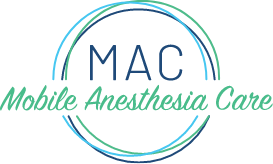GENERAL FAQ
Your dentist has made a professional decision that in order to obtain the best possible dental results for your child, general anesthesia is necessary. Some dental procedures can be quite lengthy, often requiring multiple office visits to complete. When a child is under general anesthesia, it is more likely all dental work can be completed at a single appointment. Our anesthetic will allow the dentist full visualization, uninterrupted access, and the ability to be more efficient. Our ability to monitor your child and administer appropriate medications enhances safety. Having a safe, nontraumatic procedure can help establish a positive experience for future dental and medical visits.
Office-based anesthesia (OBA) is a form of ambulatory anesthesia provided in the comfort and convenience of the dentist’s or surgeon’s office. Smaller, mobile monitoring devices and refined anesthetic techniques have made it possible to deliver anesthesia safely for appropriately chosen patients and procedures in the office.
OBA is not suitable for everyone. Patients have to be medically and physically suitable for receiving anesthesia and surgery in the office. This will be determined through evaluation by your anesthesiologist in coordination with your surgeon/dentist and with your primary care physician if necessary.
Anesthesiologists are highly skilled medical doctors (M.D. or D.O.) who specialize in the field of anesthesiology. They have significantly longer and more extensive training than other classifications of anesthesia practitioners and are the most qualified to make anesthesia related perioperative medical decisions. Anesthesiologists in the United States complete four years of undergraduate college degree, four years of medical school, and four years of anesthesia residency. Some of the MAC team have also completed an additional year of training in a pediatric anesthesia fellowship.
Although some patients may have mild side effects such as nausea or a sore throat, general anesthesia is exceptionally safe, even for children and adults with complex medical conditions. The risk of complications correlates more closely to the specific type of procedure a patient is undergoing and his or her underlying health problems than to the anesthetic itself. Serious risks of anesthesia are indeed very low, with risk of mortality estimated to be 1:200,00-400,000 for healthy patients undergoing elective procedures. The most significant risk of the surgical day is potentially the car trip to and from the procedure.
The MAC team consists of highly trained medical professionals. The anesthesia will be administered by a board-certified physician anesthesiologist, all of whom have a vast experience with pediatric anesthesia. Several maintain subspecialty certification in Pediatric Anesthesia.
Though we very much respect your desire to be with your child during the actual procedure, we will ask instead that you relax in the waiting area. The primary reason is our overwhelming concern for safety and high-quality care – best guaranteed when we are free to concentrate totally on monitoring our patients with our undivided attention.
Yes. Our physician anesthesiologist will exclusively care for your child during the course of the procedure and general anesthetic, until care is transferred for the recovery period to the MAC subspecialty RN.
STILL HAVE QUESTIONS?
CONTACT US TODAY!
"*" indicates required fields

